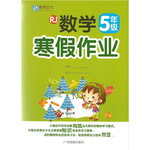题目内容
My manager promised that he would, ________, give me a chance to go abroad.
[ ]
A.if possible
B.if so
C.when needed
D.where necessary
答案:A

练习册系列答案
 黎明文化寒假作业系列答案
黎明文化寒假作业系列答案
相关题目
— I don’t think this TV set is of good quality. Can you replace it with a new one?
— ___________. But I have to talk to my manager first.
|
A.I’m sorry |
B.No way |
|
C.No problem |
D.That’s a question |